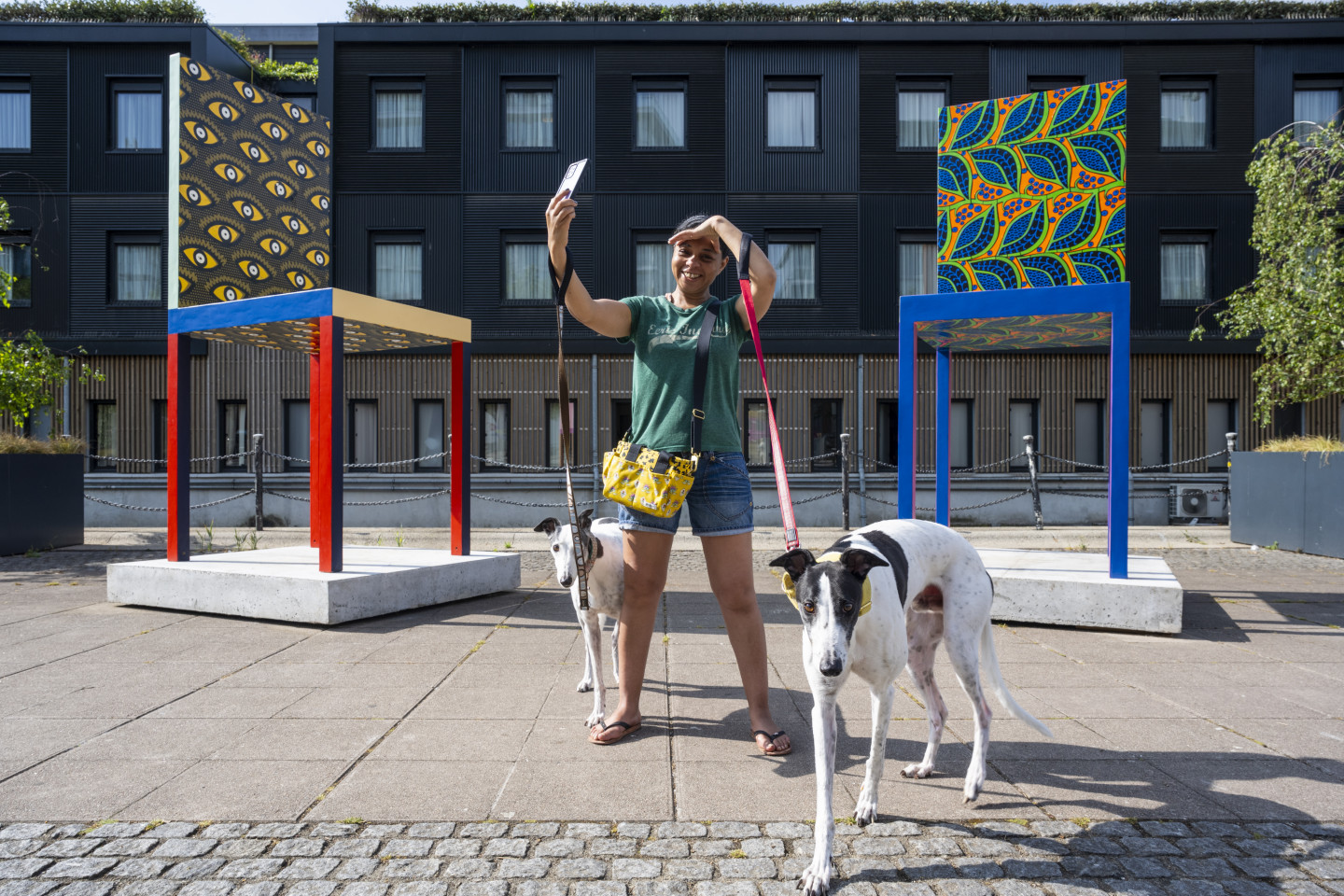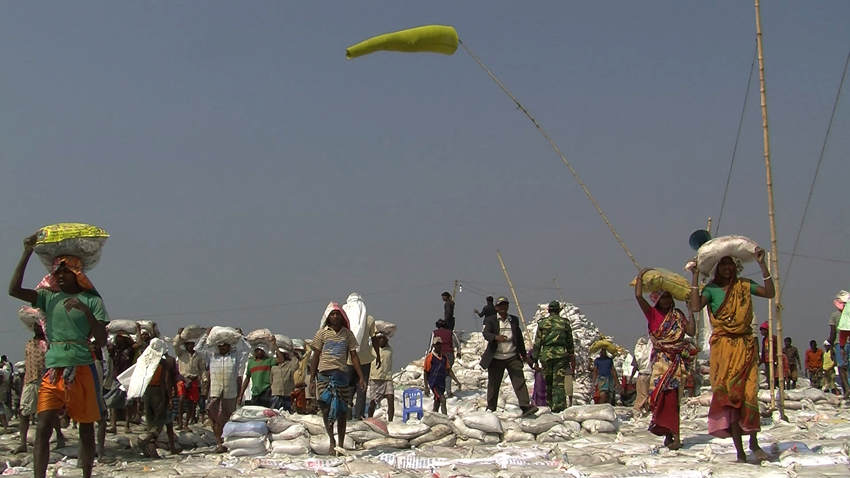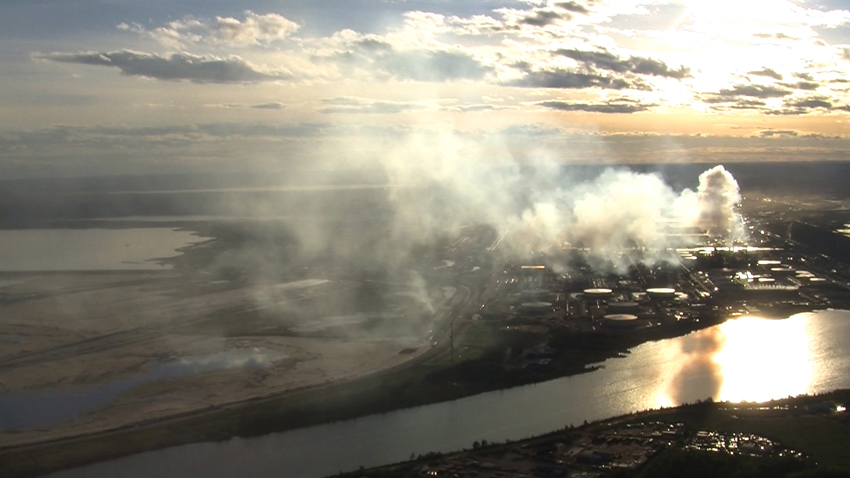Ursula Biemann
Deep Weather, 2013
Deep Weather draws a connection between the relentless search for fossil resources with their toxic impact on the climate, and the consequences this has for indigenous populations in remote parts of the world.
The video begins by documenting the huge open pit extraction zone in the tar sands in the midst of the vast boreal forests of Northern Canada. After the oil peak, ever dirtier, remote and deeper layers of carbon resources are being accessed now. Aggressive mining, steam processing and evacuation of the tar-sands are impinging on environmental and human rights as they devastate territories of First Nation people.
Climate change, exasperated by projects such as the Canadian tar sands, puts the life of world populations in danger. Melting Himalayan ice fields, rising planetary sea levels and extreme weather events increasingly define the amphibian lifestyle imposed on the Bangladeshi population. The video documents the gigantic community effort by thousands in the Deltas of the global south to deal with climate change without mechanical help. These are the measures taken by populations who progressively have to live on water when large parts of Bangla will be submerged and water is declared the territory of citizenship.
Courtesy of the artist.
Biography
Ursula Biemann (1955, Zurich) is an artist, author, and video essayist. Her artistic practice is strongly research oriented and involves fieldwork from Greenland to Amazonia, where she investigates climate change and the ecologies of oil, ice, forests and water. In her multi-layered videos, she interweaves vast cinematic landscapes with documentary footage, science fiction poetry and academic findings to narrate a changing planetary reality.
Since 2018, Biemann has been working on a major commission by Museo de Arte, Universidad Nacional de Colombia for the co-creation of a new indigenous University in the South of Colombia led by the Inga people where she contributes the online platform Devenir Universidad. Her recent video installation Forest Mind (2021) emerges from this long-term collaboration.
She has published numerous books, including Forest Mind with Spector Books (2022) and the audio-visual online monograph, Becoming Earth, on her ecological video works 2011-2021. Biemann has had recent solo exhibitions at MAMAC Nice and the Centre Culturel Suisse in Paris. Her work also contributes to major museum exhibitions worldwide and to international Art Biennials. She has received the 2009 Prix Meret Oppenheim, the Swiss Grand Award for Art, and the 2022 Zurich Art Award.


